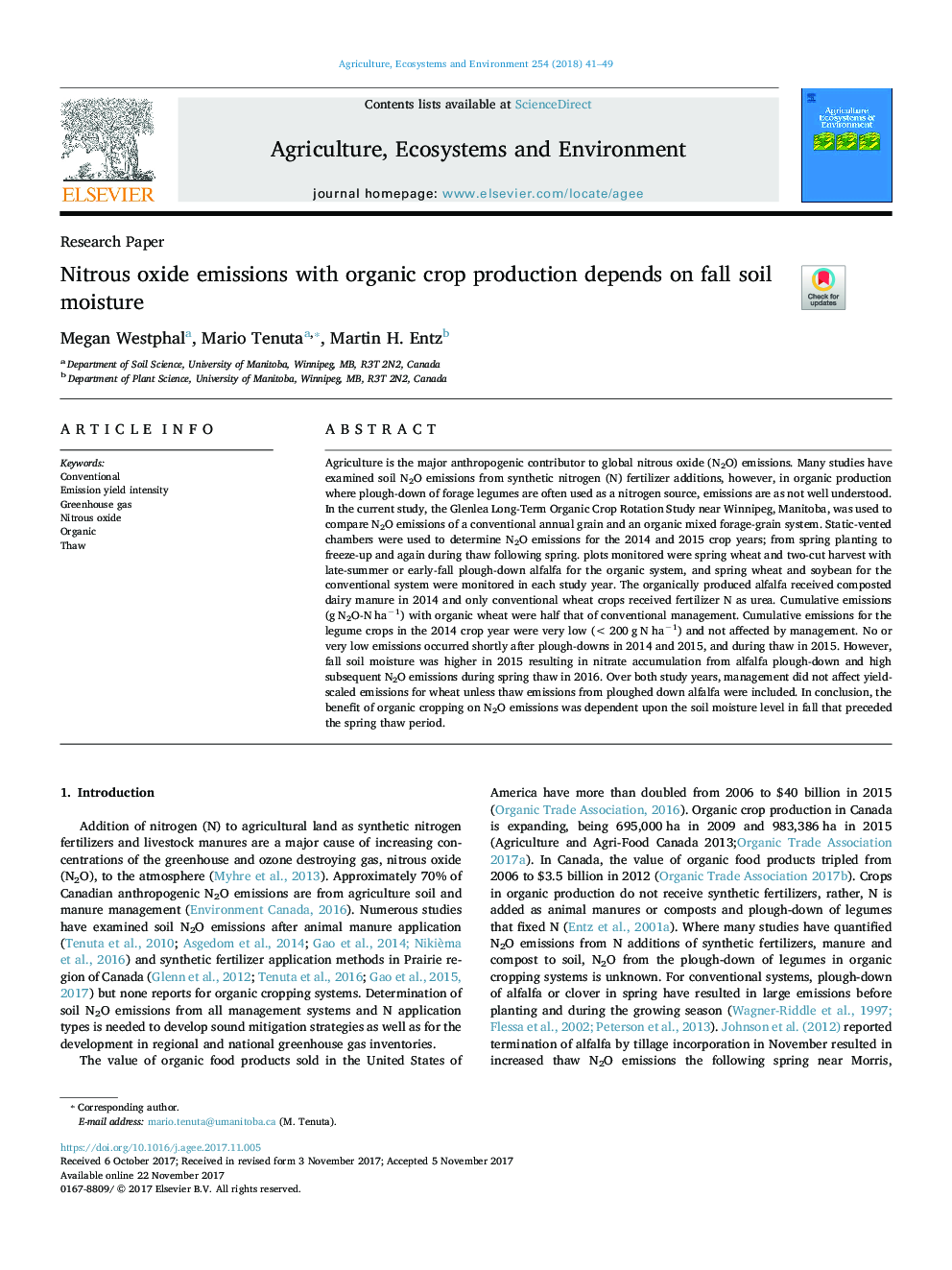| کد مقاله | کد نشریه | سال انتشار | مقاله انگلیسی | نسخه تمام متن |
|---|---|---|---|---|
| 8487200 | 1551998 | 2018 | 9 صفحه PDF | دانلود رایگان |
عنوان انگلیسی مقاله ISI
Nitrous oxide emissions with organic crop production depends on fall soil moisture
ترجمه فارسی عنوان
انتشار اکسید نیتروژن با تولید محصولات ارگانیک به رطوبت خاک بستگی دارد
دانلود مقاله + سفارش ترجمه
دانلود مقاله ISI انگلیسی
رایگان برای ایرانیان
کلمات کلیدی
مرسوم، شدت انتشار، گاز گلخانه ای، اکسید نیتروژن، ارگانیک، باز کردن
موضوعات مرتبط
علوم زیستی و بیوفناوری
علوم کشاورزی و بیولوژیک
علوم زراعت و اصلاح نباتات
چکیده انگلیسی
Agriculture is the major anthropogenic contributor to global nitrous oxide (N2O) emissions. Many studies have examined soil N2O emissions from synthetic nitrogen (N) fertilizer additions, however, in organic production where plough-down of forage legumes are often used as a nitrogen source, emissions are as not well understood. In the current study, the Glenlea Long-Term Organic Crop Rotation Study near Winnipeg, Manitoba, was used to compare N2O emissions of a conventional annual grain and an organic mixed forage-grain system. Static-vented chambers were used to determine N2O emissions for the 2014 and 2015 crop years; from spring planting to freeze-up and again during thaw following spring. plots monitored were spring wheat and two-cut harvest with late-summer or early-fall plough-down alfalfa for the organic system, and spring wheat and soybean for the conventional system were monitored in each study year. The organically produced alfalfa received composted dairy manure in 2014 and only conventional wheat crops received fertilizer N as urea. Cumulative emissions (g N2O-N haâ1) with organic wheat were half that of conventional management. Cumulative emissions for the legume crops in the 2014 crop year were very low (<200 g N haâ1) and not affected by management. No or very low emissions occurred shortly after plough-downs in 2014 and 2015, and during thaw in 2015. However, fall soil moisture was higher in 2015 resulting in nitrate accumulation from alfalfa plough-down and high subsequent N2O emissions during spring thaw in 2016. Over both study years, management did not affect yield-scaled emissions for wheat unless thaw emissions from ploughed down alfalfa were included. In conclusion, the benefit of organic cropping on N2O emissions was dependent upon the soil moisture level in fall that preceded the spring thaw period.
ناشر
Database: Elsevier - ScienceDirect (ساینس دایرکت)
Journal: Agriculture, Ecosystems & Environment - Volume 254, 15 February 2018, Pages 41-49
Journal: Agriculture, Ecosystems & Environment - Volume 254, 15 February 2018, Pages 41-49
نویسندگان
Megan Westphal, Mario Tenuta, Martin H. Entz,
